Cognitive Development Matching Worksheets for Ages 6-9
6 filtered results
-
From - To
Boost your child's cognitive development with our expertly designed Cognitive Development Matching Worksheets for Ages 6-9. These engaging and educational worksheets are tailored to enhance critical thinking, problem-solving, and decision-making skills. Through fun matching activities, children will improve their memory, attention to detail, and logical reasoning abilities. Ideal for both classroom use and home practice, our worksheets are perfect for keeping young minds active and accelerating their learning journey. Explore a variety of topics that make learning exciting, fostering a love for knowledge that will benefit your child for a lifetime. Download and start today!
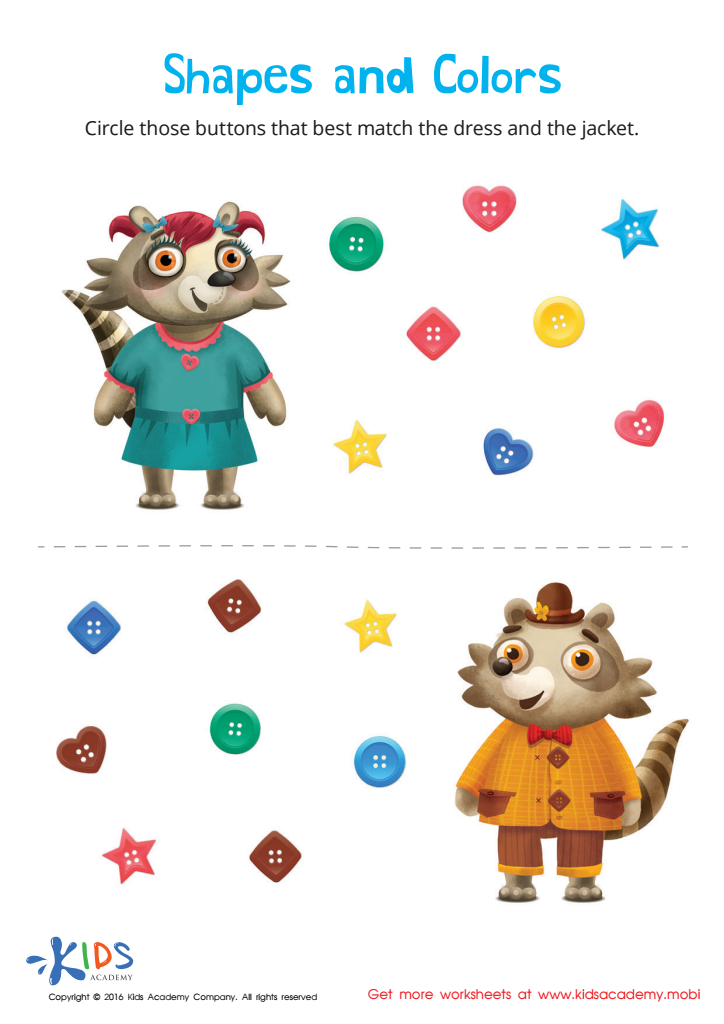

Matching: Shapes and Colors Worksheet
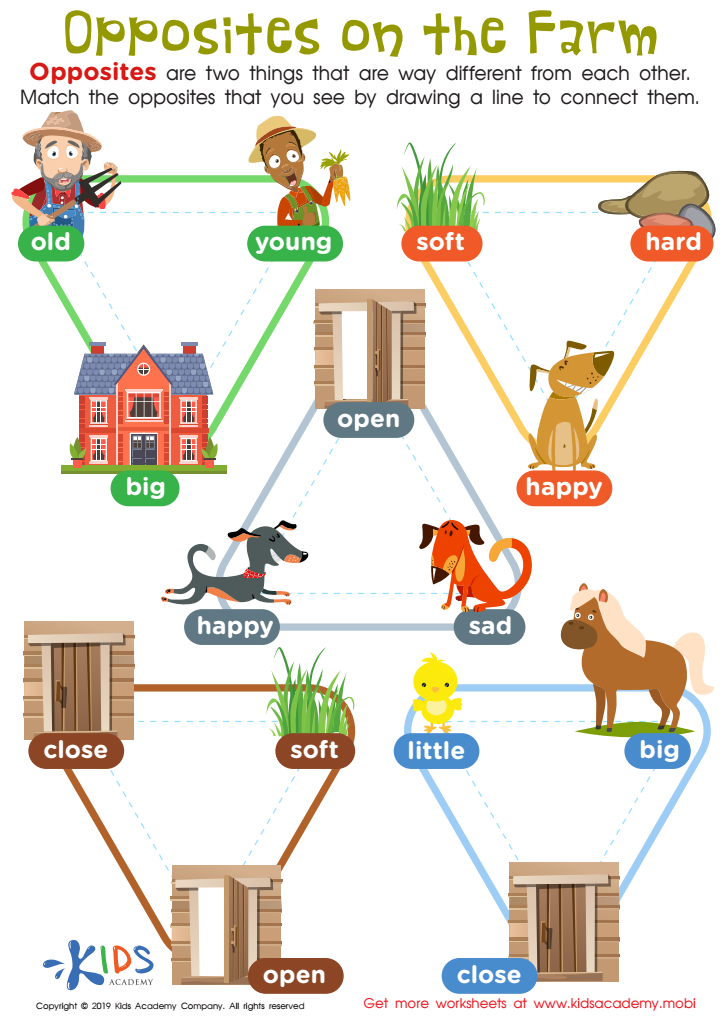

Opposites on the Farm Worksheet


Colorful Arrays Bingo Worksheet
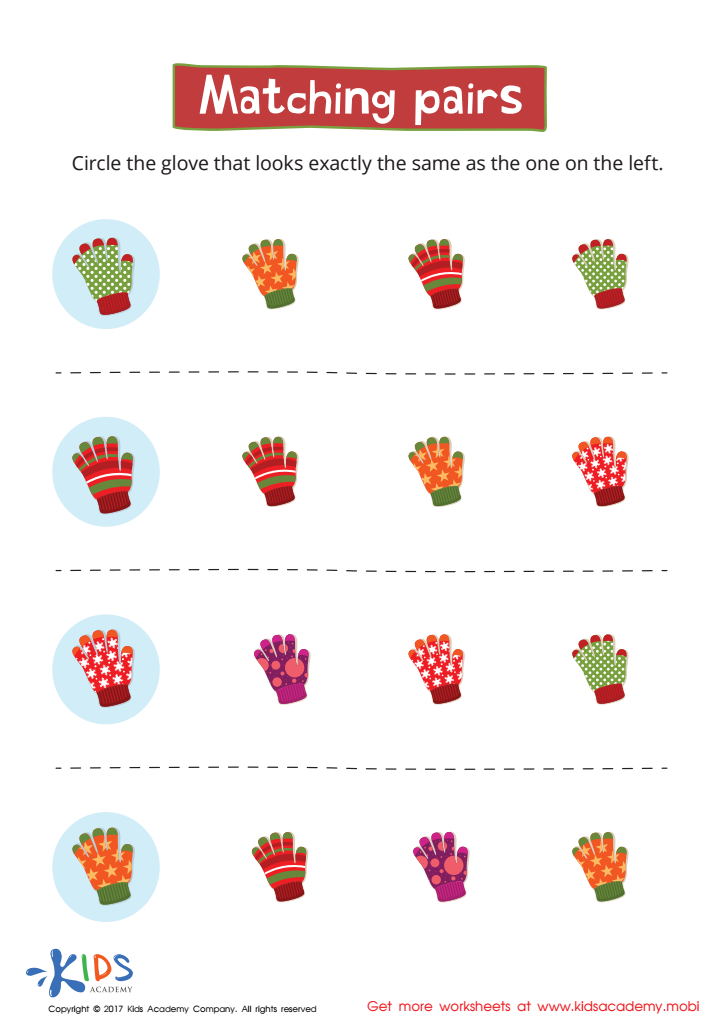

Matching: Matching Pairs Worksheet
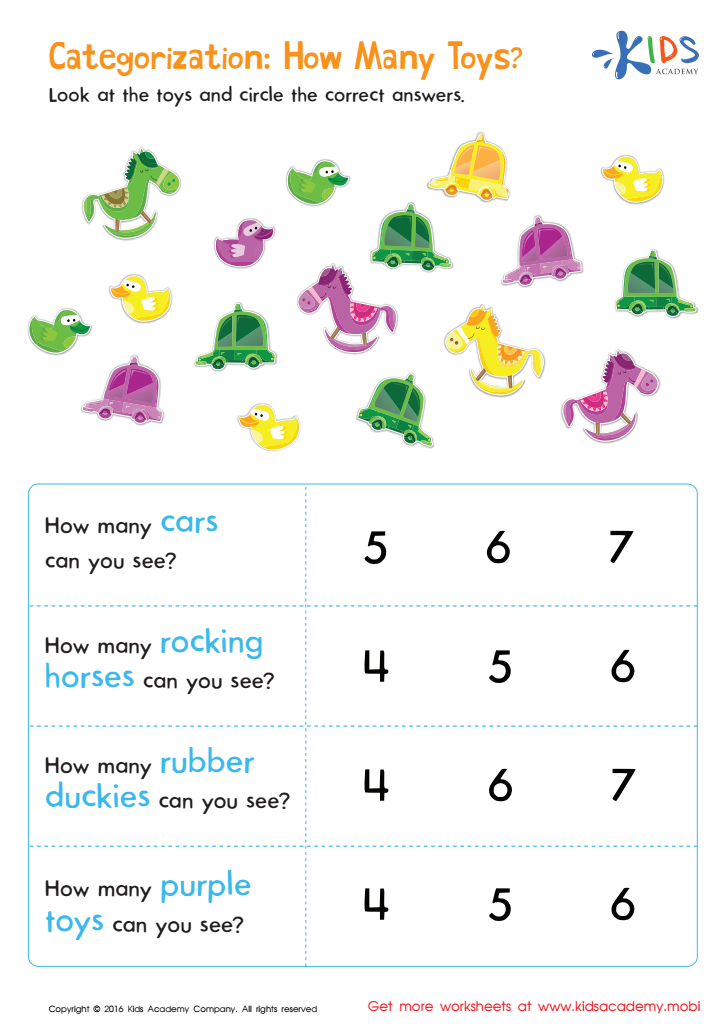

Classifying Toys by Type and Color Sorting Worksheet
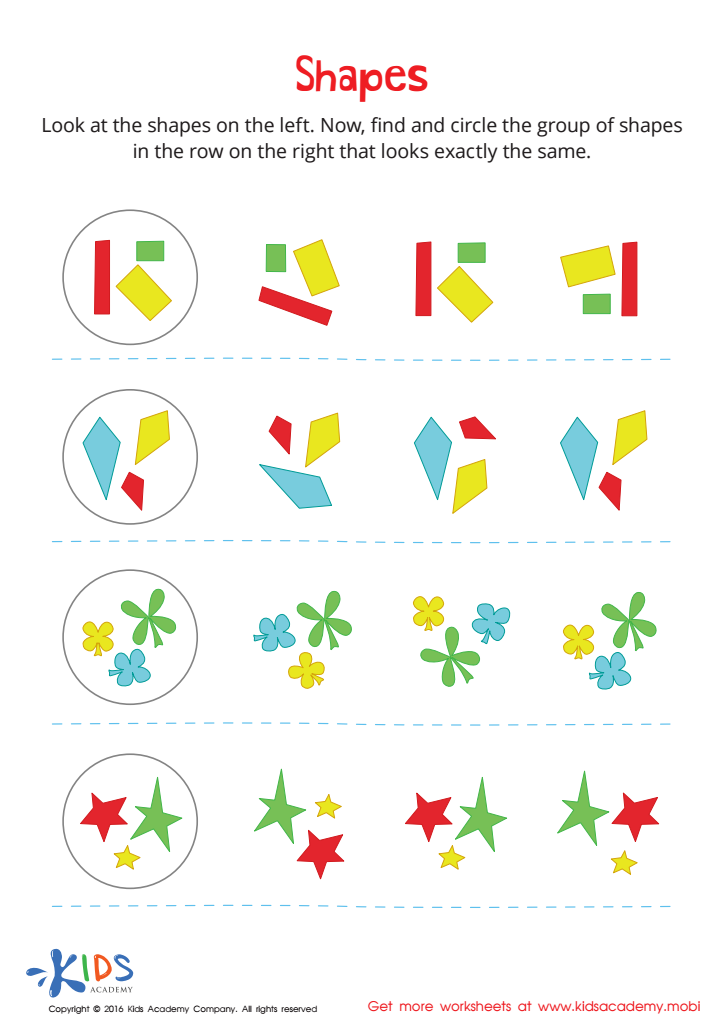

Shapes Worksheet
Cognitive development in children ages 6-9 is critical, as it forms the foundation for future learning and problem-solving skills. At this age, children experience significant growth in thinking, understanding, and reasoning abilities. Cognitive development matching involves aligning activities and teaching methods with a child's current cognitive abilities to foster optimal learning.
Parents and teachers should care about cognitive development matching for several reasons. Firstly, it ensures that children are neither overwhelmed nor under-stimulated by academic tasks. Tailoring educational content to match cognitive readiness helps maintain a child's interest and motivation, which are crucial for long-term academic success. Secondly, appropriate cognitive challenges encourage critical thinking and creativity, enabling children to apply knowledge in various contexts.
Moreover, supporting cognitive development at this stage aids in the development of essential life skills such as problem-solving, decision-making, and concentration. Personalized learning experiences also help identify and address any developmental delays or gaps early on, allowing for timely intervention.
Lastly, fostering a nurturing environment that respects a child's cognitive abilities promotes positive self-esteem and a love of learning. By prioritizing cognitive development matching, parents and teachers set the stage for a fulfilling educational journey and overall cognitive competence.
 Assign to My Students
Assign to My Students




















